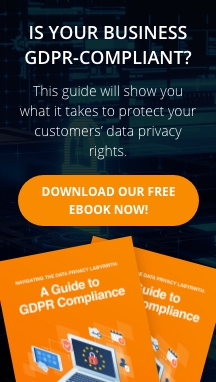Law firms build their entire brands on trust. Naturally, the highly sensitive nature of the information they hold makes them a favorite target of cybercriminals. This is one of the reasons why the legal sector has been slow to innovate. Although new technologies present opportunities, they also introduce new risks, which pushes leaders of law firms to halt innovation on the grounds of data security and privacy.
Unfortunately, this outmoded approach also leaves your practice in a precarious position as it tries to keep up with more innovative competitors. To make that happen, a change of mindset is needed, whereby cybersecurity is no longer seen as something to be afraid of, but something that adds value to your brand.
#1. Implement stricter access controls
Cloud and mobile technologies continue to transform every industry by enabling workforce mobility, built-in disaster recovery, and the ability to scale effortlessly with demand. However, the accessibility of cloud-hosted resources and the fact that mobile devices can be easily lost or stolen make it easier for an attacker to infiltrate the system. Fortunately, it’s possible to overcome these challenges by implementing access controls that overcome the limitations of passwords through multifactor authentication.
#2. Choose your vendors carefully
Today’s businesses often outsource their operations across dozens of third parties, many of whom could have direct access to their sensitive data. For example, the Target data breach, one of the biggest ever, resulted from a network vulnerability of an HVAC supplier. No matter how robust your internal security solutions are, all it takes is a vulnerability in a third-party vendor to leave your network wide open to attack. While there’s no denying the benefits of outsourcing your IT, it’s imperative that you choose your technology partners with the utmost care.
#3. Use document management processes tailored to the legal sector
Few industries are as document-heavy as the legal sector, which has become dependent on modern filing solutions to keep track of case files. However, since the legal sector is subject to some of the strictest data protection regulations, you have to make sure that your document management systems are protected with industry-specialized cybersecurity. Choose the right solutions from an industry-compliant provider, so you can innovate without fear.
#4. Upgrade your firewall
If you’re still using a consumer-grade firewall, such as those that come built-in with modern operating systems, then it’s time to seriously rethink the way you approach security. Enterprise firewalls are far more sophisticated and typically combine intrusion detection and prevention to form a complete threat management solution. Many of these systems lie beyond traditional perimeter defense and are managed by the vendor, which provides an additional protection layer from insider threats. Furthermore, unified threat management (UTM) solutions can be extensively customized to align with the specific security policies of your practice.
#5. Train employees in cybersecurity
Employees are often the weakest link when it comes to information security. This shouldn’t come as a surprise given the ubiquity of social engineering scams that rely on exploiting human weakness. Your staff might be great at their jobs, but that doesn’t necessarily mean they understand the implications of data security. All too often do employees think that information security is the lone responsibility of the IT department. In fact, security is everyone’s responsibility, hence the need for regular cybersecurity training.
Fidelis provides industry-specialized technology expertise and solutions for law firms across the Pacific Northwest. Get in touch today to schedule your first consultation.


